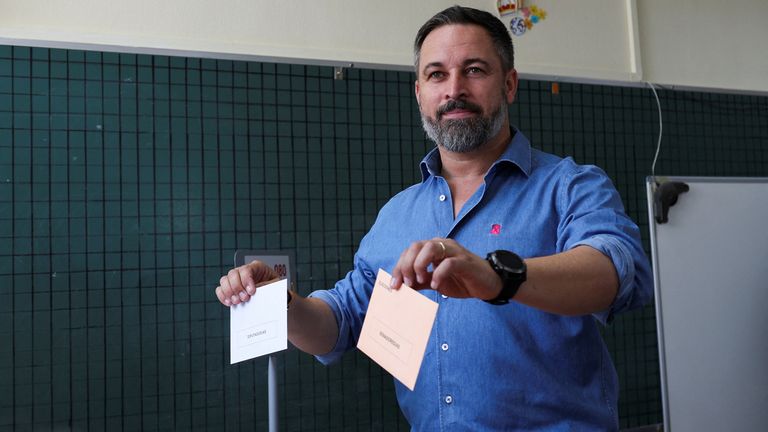
Spain appears headed for political gridlock after a snap general election left parties on the right and left without a clear path towards forging a new government.
With 100% of votes counted by the early hours of Monday, the conservative Popular Party (PP) had 136 seats in parliament while Prime Minister Pedro Sanchez’s Spanish Socialist Workers’ Party had 122 seats.
Both were short of the 176 seats needed to govern.
The two leading parties will now seek to negotiate coalition deals in pursuit of a governing majority but analysts warned the process could end in a hung parliament and another election.
Pre-election polls had predicted a bigger victory for the PP, led by Alberto Nunez Feijoo, and the possibility for it to form a coalition with the far-right Vox party.
Mr Sanchez had called the early election after his ruling party and its far-left partner, Unidas Podemos, took a hammering in local and regional elections in May.
As well as asking the Spanish public to choose 350 members of the lower house of parliament, the Congress of Deputies, the election also gave people a say on 208 members of the country’s senate.

